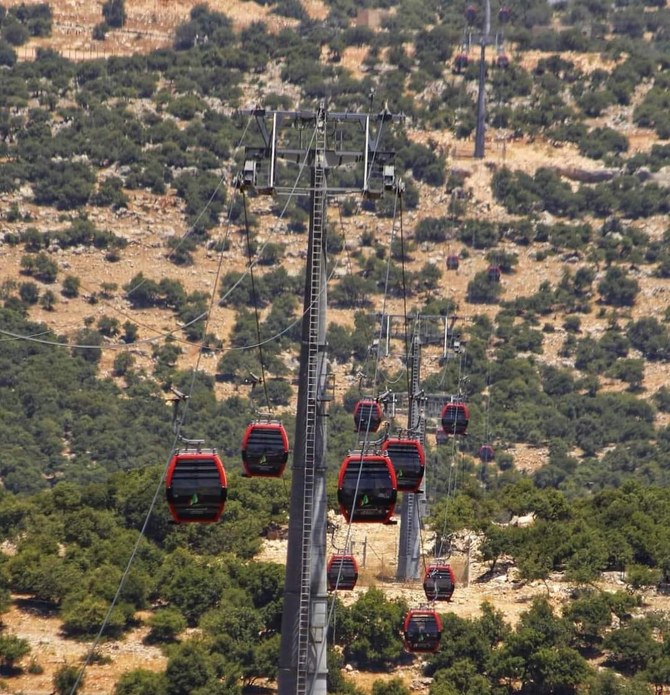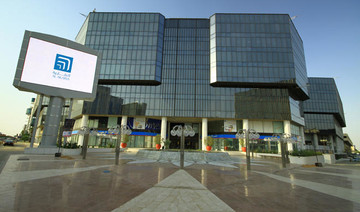AMMAN: Visitors are reportedly flocking in large numbers to the northern city of Ajloun in the highlands of northern Jordan, where a newly opened cable car ride is giving people the chance to experience stunning panoramic views of the mountainous forest landscape.
The Ajloun Teleferique, which was created by royal decree, is the first project of its kind in Jordan. Located about 70 kilometers northwest of Amman, it opened to the public in mid-June and immediately proved incredibly popular with visitors from across the country.
After taking a ride on the cable car with his family, visitor Omar Edajah said: “It was a breathtaking experience. Seeing the green mountains (and) the Ajloun Castle from above is such a splendid and unforgettable experience.”
The 49-year-old said he once rode in a cable car with his wife and four children in Antalya during a visit to Turkiye and had enjoyed the views over the green mountains and Mediterranean Sea.
“But I always said to myself, why don’t we have (a cable car) in Jordan, in Wadi Rum or Ajloun?” he said.
“At last, my dream has come true and now, a one-hour drive from Amman, we can always enjoy such an awesome experience.”
The cable car system covers a distance of 2.5 kilometers in about 10 minutes. It begins in the Eshtafina forest and terminates at Ajloun Castle, 1,250 meters above sea level. The cost of a return journey is 4 Jordanian dinars ($5.64). The total cost of the construction project, which began in 2020 but was delayed by the COVID-19 pandemic, was 11 million dinars.
Arwa Hiyari, the CEO of the Jordan Free and Development Zones Group, which manages the new attraction, said that more than 20,000 people rode in it in the first 10 days after its official inauguration on June 20.
During the Eid Al-Adha holiday at the end of last month, between 2,500 and 3,000 people used it each day, she added.
The Ajloun Teleferique will boost the tourism sector in the area, Hiyari said, and the project had created a number of investment opportunities.
Mohammed Al-Deek, the director of Ajloun Tourism Directorate, said that between 40,000 and 50,000 people visited Ajloun on Wednesday this week, the Islamic New Year holiday, “with the cable car being their first destination.”
He added that number of people coming to the area each weekend to ride on the cable car is having a knock-on effect on bookings at hotels, resorts and other local attractions.
Jorda historically has focused more on the development of infrastructure projects at the southern tourist attractions of Petra, Wadi Rum and Aqaba, collectively known as Jordan’s Golden Triangle, than in the cities of Jerash, Ajloun and Irbid in the north, which is a more verdant part of the mostly desert country and is home to hundreds of ancient Roman and Greek sites.
During a visit in May to Jerash, Jordan’s King Abdullah II called for the development of more tourism projects in the city, which he described as “one of the most beautiful places” he had ever seen.
Jerash, which is about 40 kilometers north of Amman, is considered one of the largest and most well-preserved sites of Greek and Roman architecture outside of Italy.
According to recent data from the Central Bank of Jordan, expenditure by Jordanians on outbound tourism rose by 46.5 percent during the first half of 2023 compared with the same period in 2022, reaching $905.5 million. The bank said that in June alone, expenditure on outbound tourism was about $209 million, a 41 percent increase on June 2022.
The bank data also revealed that tourism revenue reached $3.456 billion during the first six months of this year, a 59.4 percent increase compared with the same period of last year.
Spending by Jordanians on tourism abroad reached $1.467 billion in 2022, an increase of 59.6 percent compared with 2021. Tourism revenue in Jordan increased by 110.5 percent in 2022 to $5.816 billion, according to the bank, exceeding the figure for the 2019 pre-pandemic period by 0.4 percent.
New cable car is a big hit with tourists in Jordan’s northern forest city
https://arab.news/wk6e6
New cable car is a big hit with tourists in Jordan’s northern forest city

- The Ajloun Teleferique, the first project of its kind in Jordan, offers panoramic views of the mountainous forest landscape
- More than 20,000 people rode in it in the first 10 days and 2,500-3,000 people used it each day during the Eid Al-Adha holiday
Iraq PM says Syria security key to Middle East stability

- “Sudani emphasized that Syria’s security and stability are closely linked to Iraq’s national security and play a crucial role in regional security
BAGHDAD: Iraqi Prime Minister Mohammed Shia Al-Sudani told Syrian President Bashar Assad on Saturday that his country’s security was key to the stability of the whole region.
“Sudani emphasized that Syria’s security and stability are closely linked to Iraq’s national security and play a crucial role in regional security and efforts to establish stability in the Middle East,” his office said.
Will shaky ceasefire hold in Lebanon as tensions simmer in the neighborhood?

- Arab American Institute founder James Zogby and international law expert Brad Roth share their insights on the Ray Hanania Radio Show
- Events in Syria suggest non-state actors taking advantage of weakness of Axis of Resistance alliance after setbacks in Gaza and Lebanon
CHICAGO/LONDON: As a fragile ceasefire in Lebanon meant to stop the fighting between Israel and Hezbollah enters its fifth day, experts have cast doubt on its sustainability, the region’s future stability and the role of international justice in holding leaders accountable for alleged war crimes.
To complicate matters, a surprise attack on Aleppo, a city in neighboring Syria, by militant groups on Thursday breached a five-year-long truce, reigniting a long-running civil war with an intensity not seen in years.
The most serious challenge to the government of President Bashar Assad in years, the assault has raised questions about whether non-state actors are trying to take advantage of weakness of the so-called Axis of Resistance alliance resulting from setbacks suffered by Hamas in Gaza and Hezbollah in Lebanon.
Appearing on “The Ray Hanania Radio Show” this week, Arab American Institute founder James Zogby and international law expert Brad Roth offered insights into the Lebanon ceasefire agreement and its broader geopolitical implications.
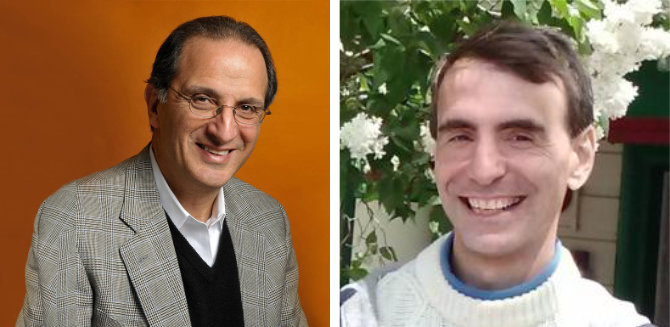
The ceasefire, announced earlier this week, comes after months of intense fighting in southern Lebanon and Gaza. While it has brought temporary relief, the terms appear to favor Israel, with critics warning of its instability as the two factions “remaining fully equipped” to strike.
Zogby described the deal as “one-sided,” noting that Israel retains significant freedom to act unilaterally. “The US and France were pushing (for the ceasefire), but the terms of the deal are Israel’s terms,” Zogby said.
The truce, brokered by the US and France, revisits the framework of UN Resolution 1701, enacted 18 years ago. According to US President Joe Biden, the agreement is intended to establish a “permanent cessation of hostilities.” It calls for Israel to withdraw its forces from southern Lebanon and limits armed groups in the area to the Lebanese military and UN peacekeeping forces.
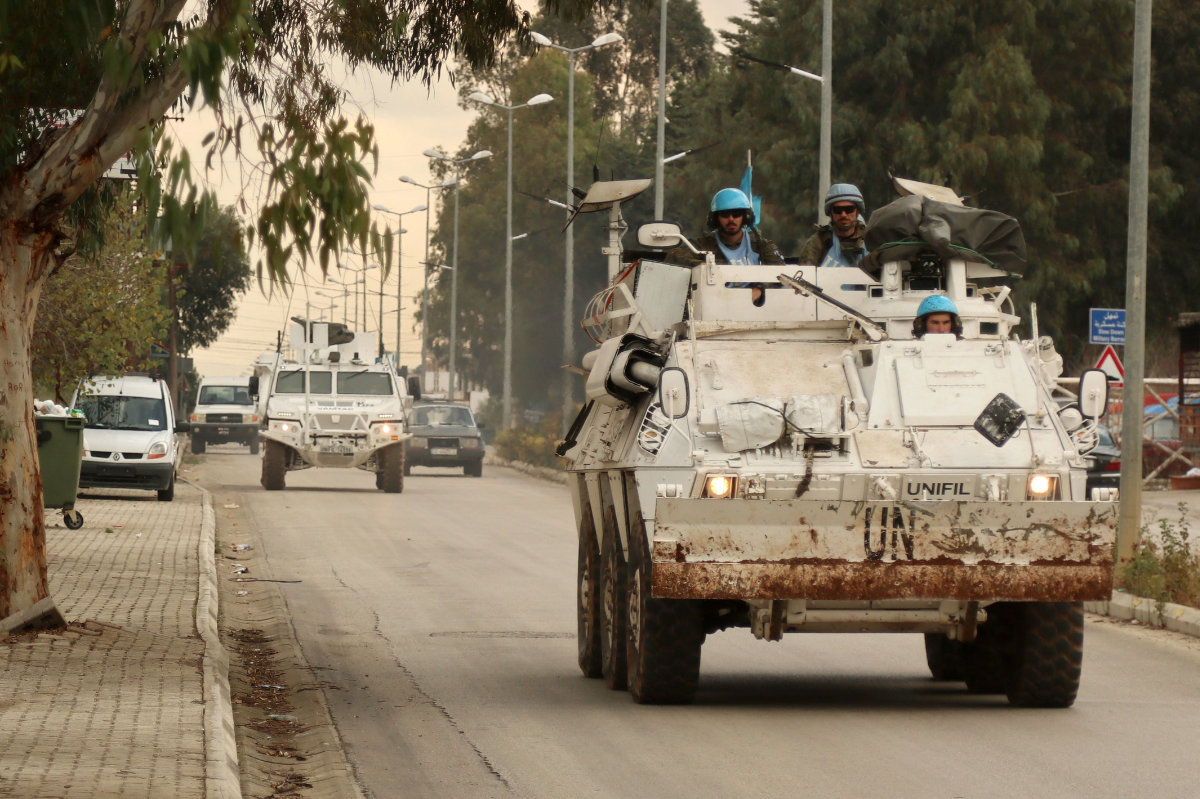
However, the updated terms grant Israel extensive leeway. A “reformulated and enhanced” mechanism, chaired by the US, allows Israel to strike Hezbollah arms shipments, a clause that Israeli Prime Minister Benjamin Netanyahu described as ensuring “full freedom of military action” with Washington’s backing.
Meanwhile, the US has pledged to rearm Israel, restoring its military capacity to pre-war levels.
“I don’t think we have a ceasefire in the real sense of a ceasefire. It’s not two teams agreeing to stop. There’s one team saying: ‘we gotta stop.’ That’s Lebanon. The other team is saying: ‘We’re going to continue if we need to and the way we want to’,” Zogby said, suggesting that Israel’s insistence on the ceasefire was partly driven by internal challenges.
“I think there’s another reason why Israel wanted this now, and that is that their troops are exhausted,” he said. “They’ve been fighting new fronts. Israel’s never fought a war this long. They’re already experiencing suicides and other forms of post-traumatic shock syndrome.”

Yet, Zogby warned that Israel’s military dominance remains unchecked. “The US has created a monster which has incredible offensive capability and no restraint. None. I used to compare Israel and the Palestinians to the spoiled child and the abused child. Israel’s the spoiled child with unlimited destructive capability, and that’s dangerous.”
In his Tuesday night announcement of the ceasefire, Netanyahu described Israel’s military campaign as “victorious” on all seven fronts — Gaza, the West Bank, Lebanon, Iraq, Yemen, Syria and Iran — claiming it aimed to weaken adversaries and reshape the region. However, experts view his push to expand the war as a strategy to bolster his hold on power amid a corruption trial in which he is set to testify on Dec. 10, and to obscure the true focus of the conflict: Gaza.
“Lebanon never was the main arena. It’s always been about the conquest of the land of Palestine for them,” Zogby said, criticizing US Secretary of State Antony Blinken’s remarks on Hezbollah’s role in Gaza, who claimed the war in Gaza lasted so long because “Hamas was counting on Hezbollah’s cavalry.
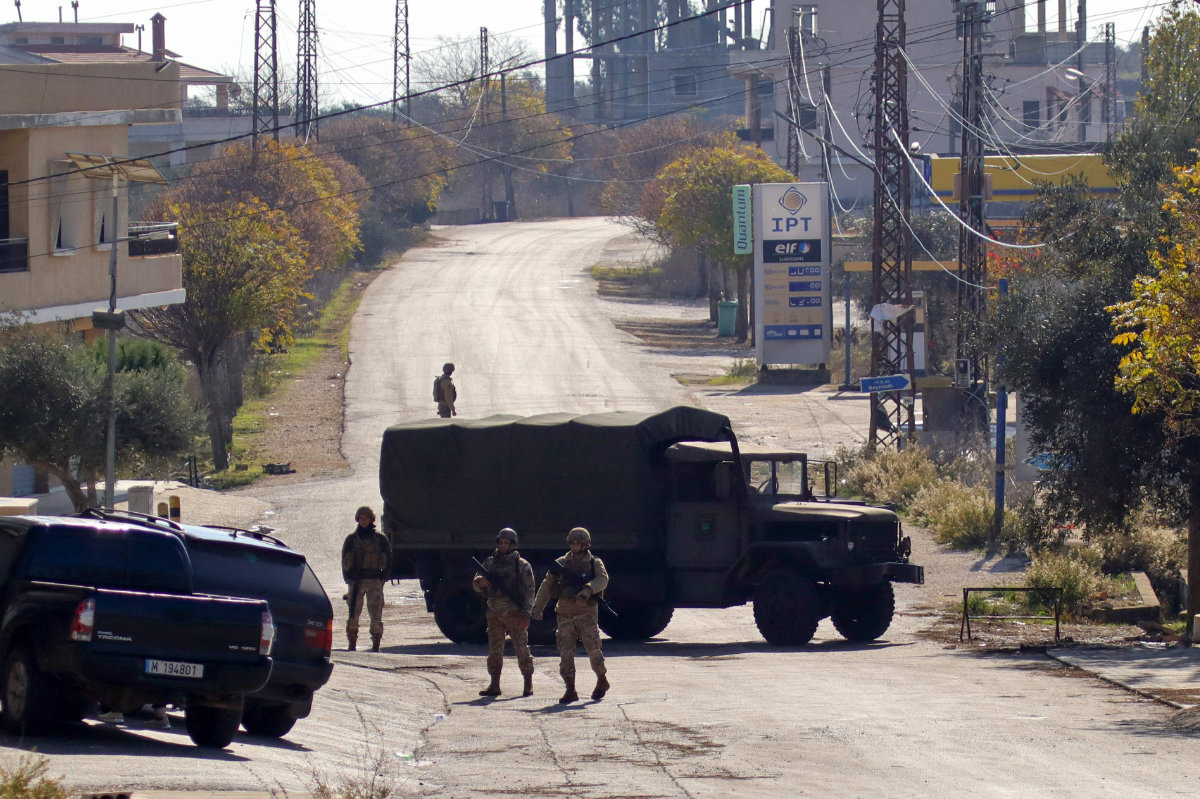
“And I thought, ‘how dumb, how blindsided, how short-sighted, rather, can he be that he thinks that what’s going on in Gaza is Hamas holding out for Hezbollah to rescue them. This has always been about Israel destroying Hamas and the US supporting them in that. There’s never been a desire for a ceasefire or a peace agreement,” he said.
Zogby also highlighted Lebanon’s internal struggles following the conflict. With more than 1.2 million Lebanese displaced, primarily Shiite Muslims, tensions have escalated as they relocate to areas dominated by other sectarian groups. “The country, after all, has been on the brink for a long time,” Zogby said, pointing to the ceasefire’s terms, which critics say works in Israel’s favor.
Hezbollah’s decision to open a southern front in support of Gaza had drawn significant criticism within Lebanon. Many argued it exacerbated the nation’s economic and political crises, deepening divisions and compounding the devastation. While the ceasefire has provided a fleeting sense of relief, displaced Shiite residents, unable to return to their ruined homes, question what, if anything, was gained from the war.
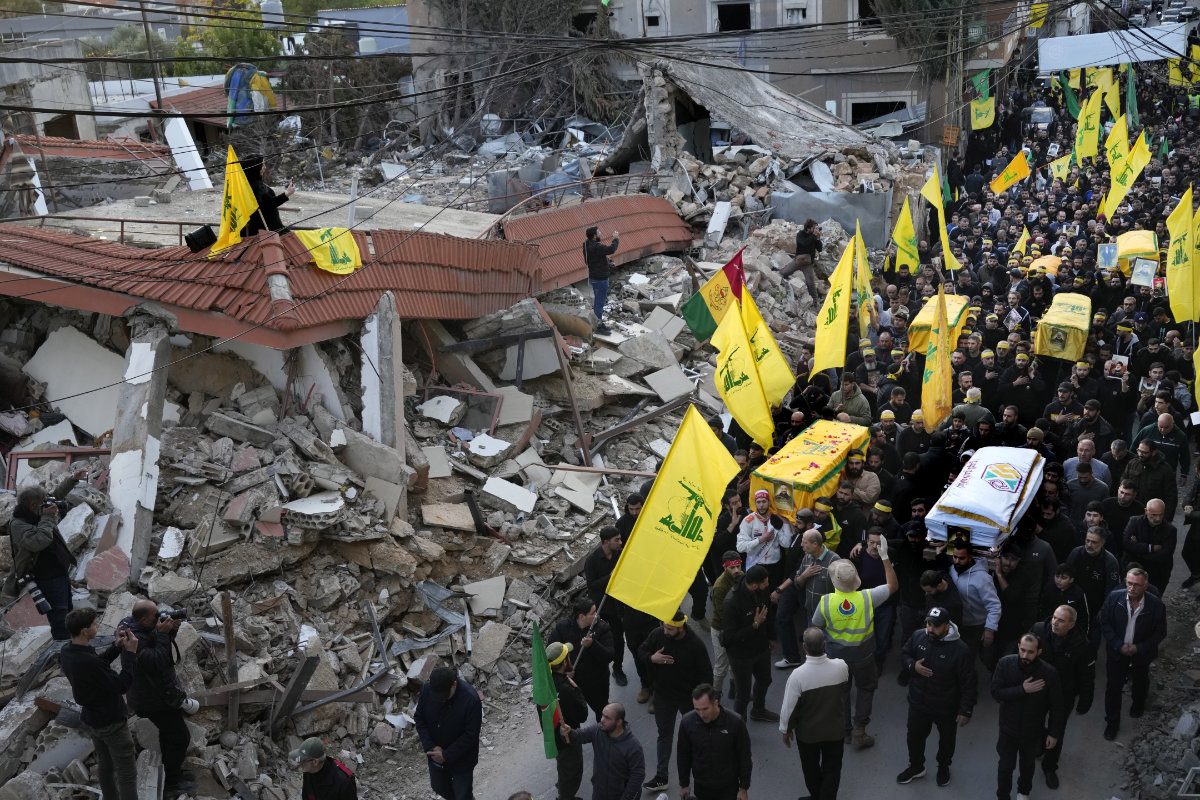
For Hezbollah, this raises existential challenges. Critics contend that its ability to mobilize support — long reliant on weapons, financial sway and promises of deterrence — has been severely weakened, leaving its future influence in the region uncertain.
The ceasefire coincides with the International Criminal Court’s move to issue arrest warrants for Netanyahu, former Israeli defense minister Yoav Gallant and Hamas commander Mohammed Deif, accusing them of war crimes and crimes against humanity. However, the likelihood of these leaders facing justice remains slim, given Israel’s refusal to recognize the ICC’s jurisdiction.
INNUMBERS
• 3,900+ People killed in Lebanon in Israeli strikes since October 2023.
• 76+ Israeli soldiers killed in war with Hezbollah over same period.
• 44,000+ Estimated Palestinian deaths in Gaza during the same period.
Brad Roth, a professor of law at Wayne State University and an expert on international justice, outlined the challenges confronting the ICC. “In principle, if US forces commit war crimes or plausibly alleged to commit war crimes within the territory of a state that is either party to the ICC statute or has conferred specialty jurisdiction over the situation, then US forces can be subject to the jurisdiction of the ICC,” he said.
“The US has always objected to that, but they have never had very good grounds for objecting to it. And, of course, Israel as well is not a party and denies that Palestine is a state and, therefore, denies that Palestine has the legal capacity to confer jurisdiction over these territories to the ICC.”
He added that most legal experts agree Palestine satisfies the criteria for ICC jurisdiction.

The ICC, established through the Rome Statute in the late 1990s and operational since 2002, was designed to prosecute individuals for crimes such as genocide, war crimes and crimes against humanity. However, its jurisdiction excludes major powers like the US, Israel, Russia and China, creating significant gaps in its authority. “It’s a sort of Swiss cheese here in terms of what it covers,” Roth said.
He highlighted that ICC member states are legally obligated to enforce arrest warrants, though enforcement often hinges on domestic politics rather than legal principles. “Then the question of whether the problem is that a state may be bound by the treaty to engage in the arrest and may be bound by customary international law to not engage in the arrest. And those domestic courts would have to deal with that question, and how that would come out is anyone’s guess,” he said.

Adding to the complexity, French officials reportedly agreed to oversee the ceasefire’s implementation only after securing assurances that ICC warrants against Israeli leaders would not be enforced. Roth attributed this to the ICC’s reliance on US funding and support, which complicates its willingness to pursue cases against US allies.
“For that, you can draw your own conclusions about why it is that a body, so heavily dependent on US support and funding and assistance with investigation and so forth, might be reluctant to take action against the US,” he said.
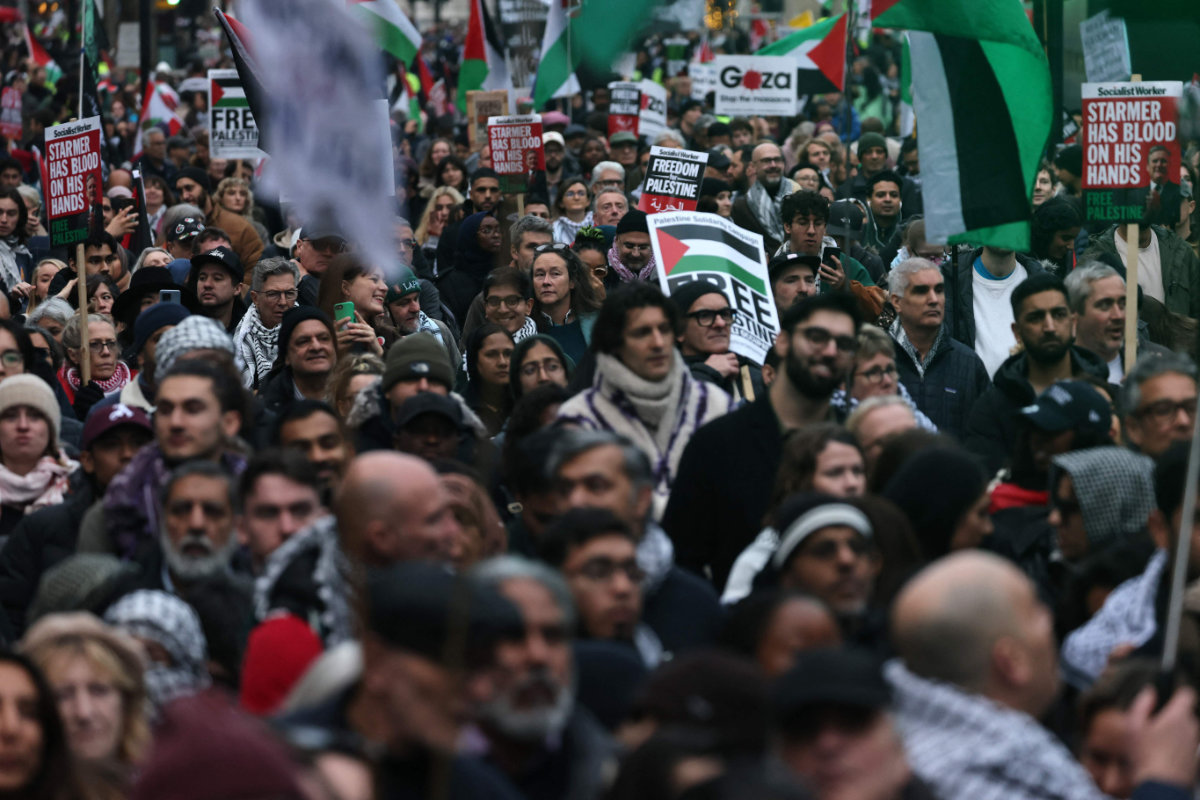
The US role in shielding Israel from international accountability has drawn criticism, particularly during the Gaza war. While the Biden administration has framed its unwavering support for Israel as essential for regional security, critics argue this stance exacerbates instability.
Zogby cautioned that continued backing of Israel’s military campaigns risks undermining long-term peace efforts, as evidenced by the resurgence of fighting in Syria.
According to the UK-based Syrian Observatory for Human Rights war monitor, the militants, mainly from the Hayat Tahrir Al-Sham, took control of “more than half of Aleppo” within hours on Friday without encountering any resistance from Syrian government forces. The official Syrian media challenged this narrative and claimed to have captured groups of “terrorists.”
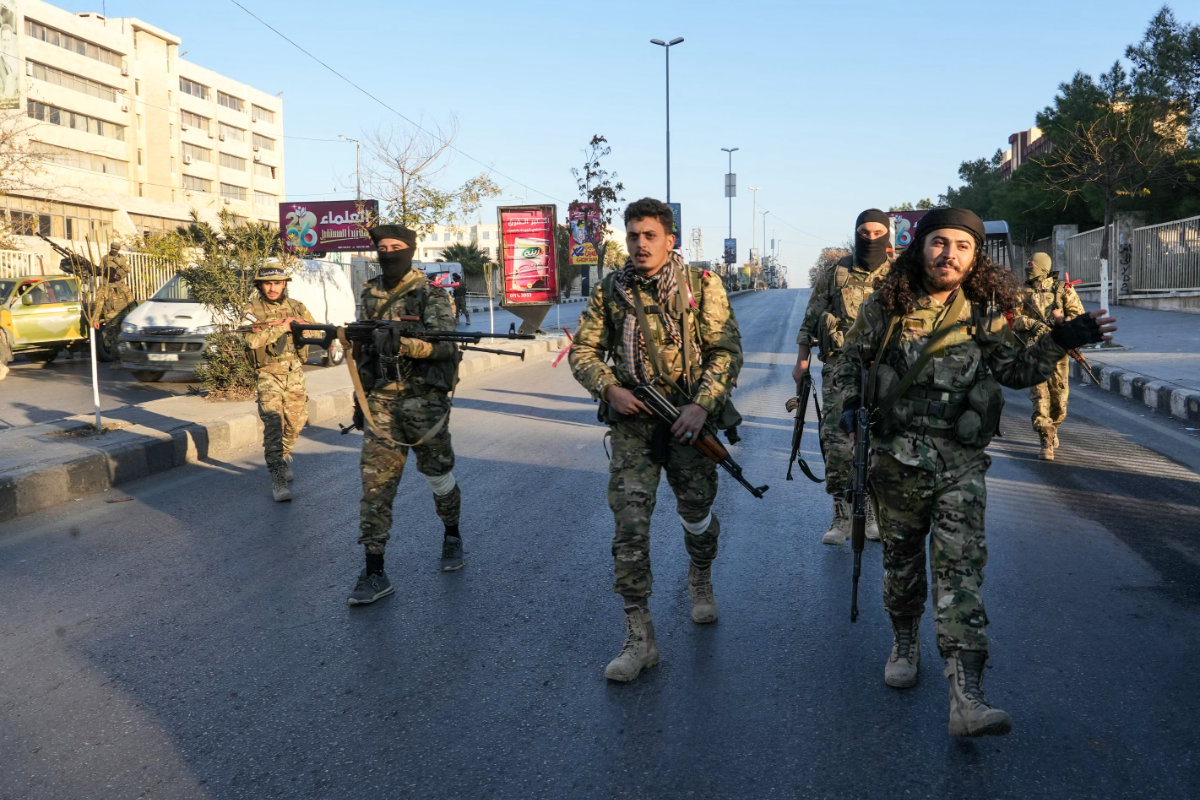
While the ceasefire has brought a temporary halt to the violence in Lebanon, the road ahead remains uncertain, particularly on issues related to justice and accountability.
To Roth, the ICC’s efforts to hold Israeli leaders accountable may exemplify the broader difficulties of navigating international law amid powerful political interests. A lasting resolution, he suggested, requires a robust international response addressing the root causes of the conflict.
“The Ray Hanania Radio Show” is broadcast every Thursday in Michigan on WNZK AM 690 Radio at 5 p.m. on the US Arab Radio Network and is sponsored by Arab News. To watch the full episodes and past shows, visit ArabNews.com/RayRadioShow.

Ex-minister Yaalon accuses Israel of ‘ethnic cleansing’ in Gaza

- Far-right National Security Minister Itamar Ben Gvir said it was a “shame” for Israel to “have had such a figure as army chief and defense minister”
JERUSALEM: Israel’s former defense minister Moshe Yaalon on Saturday accused the Israeli army of “ethnic cleansing” in the Gaza Strip, sparking an outcry in the country.
“The road we are being led down is conquest, annexation and ethnic cleansing,” Yaalon said in an interview on the private DemocratTV channel.
Pressed on the “ethnic cleansing” appraisal, he continued: “What is happening there? There is no more Beit Lahia, no more Beit Hanoun, the army intervenes in Jabalia and in reality the land is being cleared of Arabs.”
The north of the Gaza Strip, which includes the areas Yaalon mentioned, has been the target of an Israeli offensive since October 6 aimed at preventing the Palestinian militant group Hamas from regrouping.
Yaalon, 74, was the head of the Israeli army between 2002 and 2005, just before Israel’s unilateral withdrawal from Gaza.
He served as defense minister and deputy premier before resigning in 2016 over disagreements with Prime Minister Benjamin Netanyahu.
There was immediate anger in Israel at his comments.
Far-right National Security Minister Itamar Ben Gvir said it was a “shame” for Israel to “have had such a figure as army chief and defense minister.”
Netanyahu’s Likud party, to which Yaalon once belonged, slammed his “empty and dishonest remarks,” calling them “a gift to the ICC and to the camp of Israel’s enemies.”
The statement was a reference to the International Criminal Court, which has issued an arrest warrant for Netanyahu and his ex-defense minister Yoav Gallant on suspicion of crimes against humanity and war crimes in Gaza.
The war in the Palestinian territory erupted after Hamas’s October 7, 2023 attack on Israel, which resulted in 1,207 deaths, mostly civilians, according to an AFP tally of Israeli official figures.
Israel’s retaliatory campaign has killed 44,382 people in Gaza, according to figures from the Hamas-run territory’s health ministry that the UN considers reliable.
Earlier this month, a UN special committee pointed to “mass civilian casualties and life-threatening conditions intentionally imposed on Palestinians.”
Israel’s prosecution of the war in Gaza was “consistent with the characteristics of genocide,” the committee said, in the first use of the word by the UN in the context of the current war in Gaza.
Israel has rejected the United Nations assessment as “anti-Israel fabrications.”
Hamas military arm releases new video of Israeli hostage in Gaza

- The family of hostage soldier Edan Alexander, 20, declined to comment but permitted the 3-1/2 minute video to be published
- The video shows a pale-looking Alexander sitting in a dark space against a wall
JERUSALEM: Palestinian militant group Hamas published a video of an Israeli-American hostage on Saturday, in which he pleads for US President-elect Donald Trump to secure his release from captivity.
The family of hostage soldier Edan Alexander, 20, declined to comment but permitted the 3-1/2 minute video to be published. Alexander was abducted to Gaza during the Oct. 7, 2023 attack by Hamas on southern Israel.
The video shows a pale-looking Alexander sitting in a dark space against a wall, identifying himself, addressing his family, Israeli Prime Minister Benjamin Netanyahu and Trump. It is unclear whether his statement was scripted by his captors.
Netanyahu said in a statement that the video was cruel psychological warfare and that he had told Alexander’s family in a phone call that Israel was working tirelessly to bring the hostages home.
Around half of the 101 foreign and Israeli hostages still held incommunicado in Gaza are believed to still be alive.
Hamas leaders were expected to arrive in Cairo on Saturday for ceasefire talks with Egyptian officials to explore ways to reach a deal that could secure the release of hostages in return for Palestinian prisoners.
The fresh bid comes after Washington said this week it was reviving efforts toward that goal.
The Hostages Families Forum urged the administrations of both outgoing US President Joe Biden and Trump — who takes office in January — to step up efforts in order to secure a hostage release.
“The hostages’ lives hang by a thread,” it said.
World Central Kitchen says pausing Gaza operations after Israeli strike

- WCK in a statement said it “had no knowledge that any individual in the vehicle had alleged ties to the October 7 Hamas attack“
- “All three men worked for WCK and they were hit while driving in a WCK jeep in Khan Yunis,” Bassal said
GAZA: US charity World Central Kitchen said Saturday it was “pausing operations in Gaza at this time” after an Israeli air strike hit a vehicle carrying its workers.
The Israeli military confirmed that a Palestinian employee of WCK was killed in a strike, accusing the worker of being a “terrorist” who “infiltrated Israel and took part in the murderous October 7 massacre” last year.
WCK in a statement said it “had no knowledge that any individual in the vehicle had alleged ties to the October 7 Hamas attack,” and did not confirm any deaths.
Earlier Saturday, Gaza civil defense agency spokesman Mahmud Bassal told AFP that five people were killed, including “three employees of World Central Kitchen,” in the strike in the main southern city of Khan Yunis.
“All three men worked for WCK and they were hit while driving in a WCK jeep in Khan Yunis,” Bassal said, adding that the vehicle had been “marked with its logo clearly visible.”
WCK confirmed a strike had hit its workers, but added: “At this time, we are working with incomplete information and are urgently seeking more details.”
The Israeli army statement said representatives from the unit responsible for overseeing humanitarian needs in Gaza had “demanded senior officials from the international community and the WCK administration to clarify the issue and order an urgent examination regarding the hiring of workers who took part in the October 7 massacre.”
It also said its strike in Khan Yunis had hit “a civilian unmarked vehicle and its movement on the route was not coordinated for transporting of aid.”
In April, an Israeli strike killed seven WCK staff — an Australian, three Britons, a North American, a Palestinian and a Pole.
Israel said it had been targeting a “Hamas gunman” in that strike, but the military admitted a series of “grave mistakes” and violations of its own rules of engagement.
The UN said last week that 333 aid workers had been killed since the start of the war in October of last year, 243 of them employees of the UN agency for Palestinian refugees, UNRWA.
Palestinian militants’ October 7, 2023 attack on southern Israel resulted in the deaths of 1,207 people, most of them civilians, according to an AFP tally of Israeli official figures.
Israel’s retaliatory military offensive has killed 44,382 people in Gaza, according to figures from the territory’s health ministry which the United Nations considers reliable.




